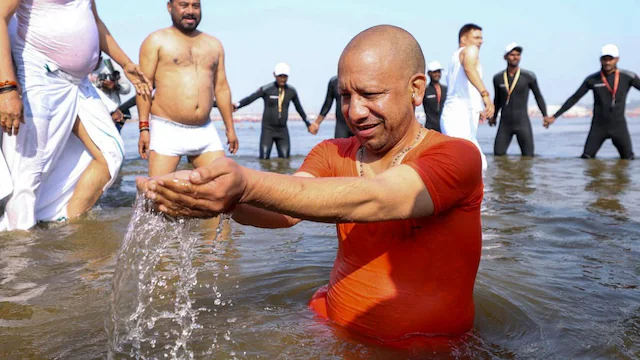
Lucknow: On Friday, Uttar Pradesh Chief Minister Yogi Adityanath praised the ongoing Maha Kumbh festival, stating it will contribute over Rs 3 lakh crore to the state’s economy. Responding to a query from Samajwadi Party MLA Ragini Sonkar during the UP Legislative Assembly’s budget session, Adityanath highlighted that the government has lifted more than eight crore people above the poverty line in the past eight years.
He expressed pride in the progress made under Prime Minister Modi’s leadership, noting that 25 crore people have been raised above the poverty line in the last decade, with six crore of those benefiting from the current government’s efforts. “This reflects changes across all sectors… The potential of Uttar Pradesh is now recognized both nationally and globally, particularly with the Maha Kumbh’s organization,” he remarked.
Adityanath also discussed initiatives for women’s empowerment, mentioning that 20% of new recruits in the Uttar Pradesh Police are women, providing them with opportunities in various sectors. He asserted that under the BJP’s “double-engine” government, Uttar Pradesh has transformed from a BIMARU state to the second-largest economy in India, aiming to reach a one trillion USD economy by 2029.
The Chief Minister referenced the success of the Global Investment Summit held in February 2023, claiming that Uttar Pradesh has become the top investment destination in the country. He reported that the summit generated proposals worth 40 lakh crore, with ground-breaking for projects totaling Rs 15 lakh crore, which he said would create jobs for 60 lakh youth. He noted that this government has also provided employment to 7.5 lakh young people.
Additionally, UP Finance Minister Suresh Khanna presented an Rs 8,08,736-crore budget for 2025-26, which includes initiatives such as developing an Artificial Intelligence City and a technology research park focused on cybersecurity, providing scooties to meritorious students based on eligibility, constructing four new expressways, and transforming 58 municipalities into smart municipalities.
